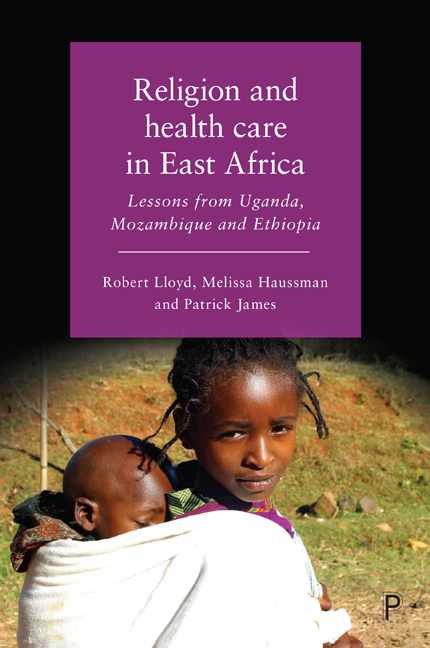2 - Background knowledge, theorizing, and evidence
Published online by Cambridge University Press: 27 April 2022
Summary
Overview
This chapter explores the nexus of religion and health care, and serves as a foundation for the case studies that ensue in Chapters 3–5. Several things stand out by the time this chapter is completed. While individual items are quite good, the academic literature on religion and health care in relation to Africa is relatively limited in size. The work that does exist, however, is sufficient to establish that health care is regarded in a holistic way by Africans. The spiritual and physical worlds are intertwined. It therefore makes sense to take as a point of departure, theoretically speaking, a perspective offered by the Social Determinants of Health. This outlook on health is comprehensive and, as further chapters unfold, seems quite in line with the reality of at least the three states included in this volume and, in all likelihood, many more of those in Africa. The states covered—Uganda, Mozambique, and Ethiopia—are majority Christian and located in East Africa. Limitations related to the preceding sample are acknowledged. Given the holistic nature of health in the three states, interviews are regarded as essential to understanding both provision and consumption. This method of data gathering is implemented for all three cases.
Work begins with an exploration of background knowledge. What patterns can be identified already regarding the role of religion in health within Africa, the most challenged among the continents in terms of development across the board? This exercise is followed by theorizing from the perspective of the Social Determinants of Health, within which an emphasis on women's health will be applied to processes and outcomes. A discussion of evidence then follows. Case selection, the basic profiling of the countries along the most relevant dimensions, and methods are covered in that section. The final section sums up the contributions of the chapter.
Religion and health in Africa: background knowledge
Given the vast literature available through African Studies, Health Studies, and Religious Studies, collectively speaking, the review of background knowledge concentrates on items that combine these interests. Figure 2.1 conveys the scope of this review through its centroid—the intersection set of the three interdisciplinary fields.
- Type
- Chapter
- Information
- Religion and Health Care in East AfricaLessons from Uganda, Mozambique and Ethiopia, pp. 25 - 40Publisher: Bristol University PressPrint publication year: 2019

